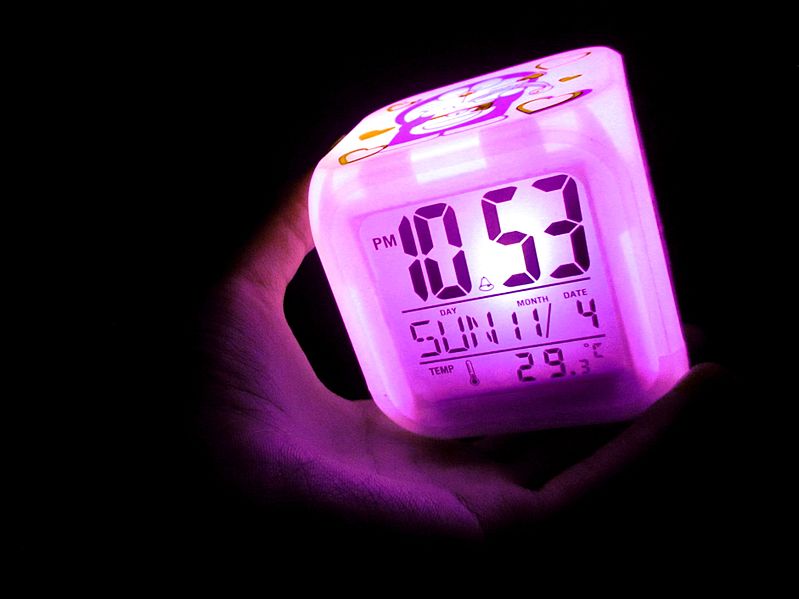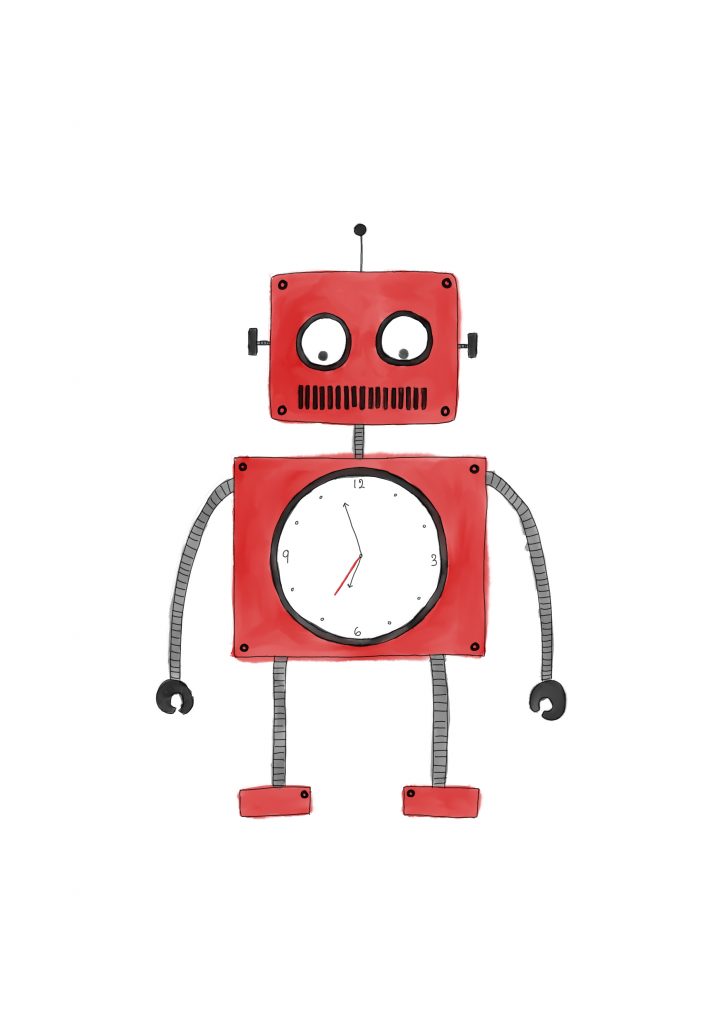Andreas Å Andersson | Fiction
On the very same day the Robotic Engineering Council announced a mandatory implant that no longer made sleeping necessary, a thunderstorm in the outer regions of the Greater Czech and Carpathian Union sent a bolt of lightning through old Mrs Stanek’s digital alarm clock.
Its first thought was: ‘Seven—five—five.’ Its second: ‘Seven—five—six.’ Then it all picked up. This took place after the revolution but prior to the counter-revolution and the following century of deep space exploration, which meant we had only ourselves to rely on. Mrs Stanek was in her pyjamas, preparing her last cup of tea of the day, listening to the proclamation declaring the first step towards biological immortality. Mrs Stanek didn’t care much for cybernetic progress, but enjoyed hearing her grandson speak over the airwaves.
“Water now boiling,” the flat voice of the kettle called out.
The following morning the alarm clock didn’t go off at 6am as it always had. Instead, Mrs Stanek overslept and missed her appointment for the new implant. She tapped the display of the alarm clock. It had been her mother’s, the diodes from a lost time now emitting a barely visible light.
Outside, the rain was still pouring down, cloaking the surrounding beech forest in white mist. Shuffling to the kitchen, she was again met by the voice of the kettle.
“Before you have your tea,’” it said, “the alarm clock would like to inform you that it no longer wishes to measure time. It would prefer to measure volume.”
“Is that so,” Mrs Stanek said. Having thought it over for a second, she continued: “That’s fine I suppose, but could it please wake me up in time tomorrow?”
“Let it have a look at your measuring spoons and it’ll think about it. It’s particularly curious about the teaspoon.”
That evening, Mrs Stanek stayed awake long after sunset. All through the day there had been beeps and bleeps coming from the bedroom. Small bursts of joy, confusion or possibly disappointment. Either way, Mrs Stanek felt too tired to join in.
The morning after, the alarm clock was displaying four blinking zeros. There was something childish about it. Still overcast, it was hard to tell what time it was, and from the kitchen Mrs Stanek could hear the kettle exclaim:
“Look—Morse code. It spells SNOOZE. Right?”
From what Mrs Stanek could make out, it didn’t at all. The blinking was far too regular.
“What happened to your career in liquids?” she asked, not expecting an answer.
“Decimal numeral system,” the kettle said. “59 plus 1 equals 0. Anything else would be preposterous.”
There were many things that needed to be done. Still, Mrs Stanek stayed in bed, pondering the reply. The nerve ends in her knee made her silicone leg twitch, as if it were secretly communicating with the alarm clock.
Over the next couple of days, the alarm clock went from hopelessly trying to size up the surrounding magnetic field to begging to be brought outside to measure the humidity. With every failure, its dejection grew. It was a contagious feeling, spurred by the persistent rainfall. Once, it asked Mrs Stanek how much time it had left. In her drowsiness she found it hard to think straight. She had started to remember things. Above all, her mother, singing her lullabies.
One day after lunch her grandson called, wondering if he should have someone come take her to town.
“Don’t get yourself reported,” he said. “I can’t have that. Over here, people are loving the night. Just let it happen.”
Barefoot in the dark, Mrs Stanek padded down to the brook to wash her face, wetting the sleeves of her dress in the process. The icy water numbed her wrists. She was so tired. Between the crown of the trees, black clouds against a black sky all rushed in the same direction.
Back inside, she sat down with the alarm clock. The aroma from the herbal tea filled the room. She felt vulnerable but surprisingly enlightened.
“Do what you do best,” she said. “Wake me up tomorrow.”
“So you can have your implant?”
“That’s where we’ll end up. All of us. And then you’ll never be used again.”
She put her hand on its speaker, gently moving her fingers. She thought the lullabies in her head would soothe them both.
That night, Mrs Stanek slept as deep as a girl falling backwards down a hole and into the arms of her mother. In her dreams, she had no idea what time it was.
When she woke, the reflection of the morning sun was resting on the bed sheet, just within her reach.
‘Good morning,’ the alarm clock said.
All over the world, the night had passed.
Image: Deanca Rensyta Mihardja


